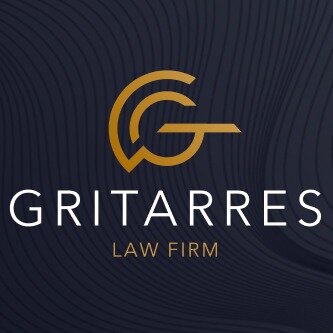Best Water Law Lawyers in Armenia
Share your needs with us, get contacted by law firms.
Free. Takes 2 min.
Or refine your search by selecting a city:
List of the best lawyers in Armenia
About Water Law in Armenia
Water Law in Armenia is a distinct branch of environmental and natural resource law that governs the ownership, use, management, and protection of water resources within the country. The legal framework addresses water allocation, quality, usage rights, and the prevention of water pollution. It is designed to ensure that water resources are used efficiently and equitably, while also preserving these resources for future generations. The Armenian Water Code, as well as related environmental laws and governmental regulations, form the core of Water Law in Armenia.
Why You May Need a Lawyer
There are several situations where consulting a legal professional specializing in Water Law may be essential in Armenia. Some of the most common reasons include:
- Resolving disputes over water rights between individuals, businesses, or communities
- Obtaining permits for water use, including agricultural irrigation, industrial activities, or construction projects
- Challenging or responding to regulatory actions from government agencies related to water quality or usage violations
- Seeking compensation for water pollution or damage caused by another party
- Understanding and complying with obligations for water conservation and resource management
- Participating in public hearings or consultations regarding water resource development projects
- Dealing with cross-border water resource issues with neighboring countries
Professional legal advice can help you navigate complex regulations, avoid penalties, and protect your interests regarding vital water resources.
Local Laws Overview
Water Law in Armenia is primarily governed by the Water Code of the Republic of Armenia. This foundational document outlines the legal regime for surface and underground water, private and public water use rights, and procedures for water management. Key aspects of the law include:
- Water resources are generally considered state property, and their use is regulated by the government to ensure sustainability
- Permits and licenses are required for significant water usage, extraction, or discharge
- There are standards set for water quality, and violations may result in administrative or criminal liability
- Special legal regimes exist for water protection zones, such as those near drinking water sources
- Water management is regulated at both national and regional levels to accommodate local needs and ecosystem protection
- Dispute resolution mechanisms are available for cases involving water rights, pollution, and allocation disputes
- International water agreements and treaties may affect local laws, especially for cross-boundary watercourses
For a full understanding, it is advisable to consult the Water Code and related orders of relevant ministries.
Frequently Asked Questions
What is considered "water use" under Armenian law?
"Water use" includes any act of extracting, consuming, storing, or discharging surface or underground water, whether for drinking, irrigation, industrial use, or other purposes.
Is it possible for individuals or companies to own water resources?
No, water resources are generally considered state property in Armenia. However, entities and individuals may be granted rights to use water under specific permits or licenses.
Are water use permits required for every kind of water extraction?
Permits are required for most non-domestic uses of water, including irrigation, industrial, and commercial purposes. Some minor or household uses may be exempt from permitting requirements.
What are the consequences of using water without a proper permit?
Unauthorized use of water can result in administrative penalties, fines, revocation of existing permits, or, in severe cases, criminal liability.
How does the law protect drinking water sources?
There are specific protection zones around drinking water sources, with strict controls on allowable activities to prevent pollution and maintain water quality.
What legal steps can someone take if their property is affected by water pollution?
Affected parties may file complaints with relevant ministries or initiate legal proceedings to seek compensation or remediation from the responsible party.
Are there special rules for water use in agriculture?
Yes, agriculture is subject to regulations concerning water allocation, irrigation methods, and protection of water bodies from agricultural runoff or pollution.
How are water disputes resolved in Armenia?
Disputes may be resolved through administrative agencies or the courts, depending on the nature and seriousness of the issue.
What government bodies oversee water management?
The Ministry of Environment and the State Committee for Water Economy are key agencies, along with local municipal authorities involved in day-to-day oversight.
Does Armenian law address transboundary water issues?
Yes, Armenia is a party to several international agreements regulating the use and protection of cross-border water resources and cooperates with neighboring countries under these frameworks.
Additional Resources
If you need more information or assistance regarding Water Law in Armenia, consider reaching out to the following resources:
- Ministry of Environment of the Republic of Armenia - responsible for policy and enforcement related to water resources
- State Committee for Water Economy under the Ministry of Territorial Administration and Infrastructure
- Environmental Protection Inspectorate
- Civic and environmental NGOs active in water resource management
- Licensed legal professionals with expertise in environmental and natural resource law
Official government websites, public libraries, and university law faculties can also provide access to the full Water Code and related regulations.
Next Steps
If you believe your situation involves Water Law issues in Armenia, consider taking the following actions:
- Gather all relevant documents, such as existing permits, notices from authorities, or evidence of disputes or pollution
- Clearly define your legal concern or question for efficient consultation with a professional
- Consult with a qualified lawyer who specializes in Water Law, environmental law, or related regulatory matters
- Contact the appropriate government agency for records or official guidance
- If immediate action is needed, such as to prevent environmental harm, inform the relevant inspectorate or municipality promptly
A legal professional will be able to guide you through the specific steps required to protect your rights, comply with the law, and address disputes. Timely legal advice is essential for effective problem solving in all matters concerning Water Law in Armenia.
Lawzana helps you find the best lawyers and law firms in Armenia through a curated and pre-screened list of qualified legal professionals. Our platform offers rankings and detailed profiles of attorneys and law firms, allowing you to compare based on practice areas, including Water Law, experience, and client feedback.
Each profile includes a description of the firm's areas of practice, client reviews, team members and partners, year of establishment, spoken languages, office locations, contact information, social media presence, and any published articles or resources. Most firms on our platform speak English and are experienced in both local and international legal matters.
Get a quote from top-rated law firms in Armenia — quickly, securely, and without unnecessary hassle.
Disclaimer:
The information provided on this page is for general informational purposes only and does not constitute legal advice. While we strive to ensure the accuracy and relevance of the content, legal information may change over time, and interpretations of the law can vary. You should always consult with a qualified legal professional for advice specific to your situation.
We disclaim all liability for actions taken or not taken based on the content of this page. If you believe any information is incorrect or outdated, please contact us, and we will review and update it where appropriate.
Browse water law law firms by city in Armenia
Refine your search by selecting a city.












